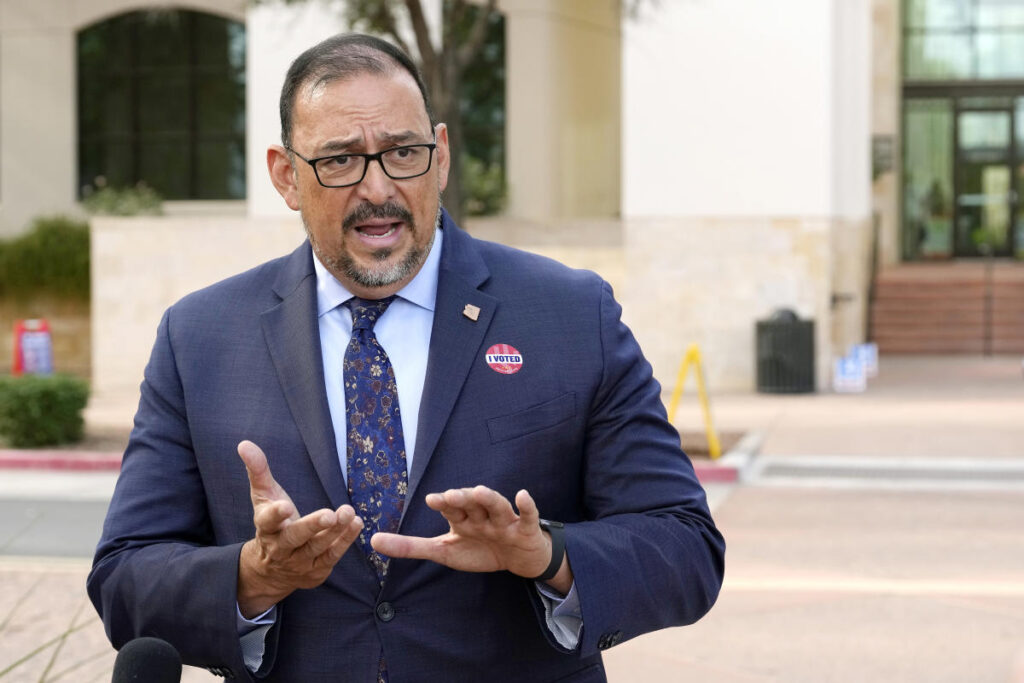In a recent ruling by Maricopa County Superior Court Judge Scott Blaney, Arizona’s Secretary of State Adrian Fontes’ office is mandated to release a list of approximately 98,000 voters who were mistakenly classified as having access to the full ballot. This misclassification stemmed from a coding glitch in state databases, leading to significant concern over the accuracy of voter citizenship verification in a state known for its contentious electoral landscape. The issue arose after a public records request was submitted by America First Legal, a group associated with former President Donald Trump advisor Stephen Miller. Indicating a lack of credible evidence for potential misuse or endangerment of voters’ safety, Judge Blaney set a deadline for the release of the list, reinforcing the need for transparency in electoral processes as Arizona heads into a critical election period.
The coding error revealed a significant problem in Arizona’s voter registration system, raising alarms that have resonated throughout the state due to its pivotal role in presidential elections. Although the glitch does not affect federal races, it has been determined that around 5% of the undecided voters in Arizona may find themselves in a troubling position, as their U.S. citizenship status remains unverified despite being allowed to vote on the full ballot. This mismanagement could potentially influence local and state races, especially in a political climate marked by fierce competition regarding crucial issues such as abortion and immigration. With a nearly even split among registered Republicans, Democrats, and independents, the impact of this voter mix-up could be substantial in determining the outcomes of upcoming elections.
Despite acknowledging that 98,000 voters were impacted, Fontes’ office expressed its reservations about the ruling and the course of action it might take following Judge Blaney’s decision. The list, along with other related communications with various government entities, is essential for ensuring that the integrity of the election process is maintained. The judge’s instructions are intended to prevent the misuse of the data and to make sure that the information is distributed cautiously, exclusively to county recorders and certain legislative leaders rather than being disseminated broadly before the upcoming elections.
America First Legal’s counsel, James Rogers, emphasized the importance of verifying voter citizenship and restoring faith in Arizona’s election mechanisms. They argue that transparency is paramount, especially in light of the perceived threats to electoral integrity. The ruling reflects a crucial balance between public access to information and protecting the privacy and safety of voters, showcasing the complexities inherent in managing voter registration systems intertwined with political contention in Arizona.
The misclassification was rooted in errors concerning voters who acquired their driver’s licenses prior to October 1996, with these voters mistakenly marked as qualifying for full ballot access. Arizona’s unique requirement of proving citizenship for participation in local and state elections—through documentation such as driver’s licenses—complicates this scenario. The glitch raises questions regarding how such errors can significantly impact electoral processes and the measures necessary for preventing future occurrences.
As Arizona approaches the election timeframe, with mounting pressure from both political campaigns vying for undecided voters, this ruling serves as a notable reminder of the administrative challenges and procedural safeguards required to uphold electoral integrity. The outcome of this situation not only has immediate implications for the affected voters but also signals how voter classification and documentation accountability will play a crucial role in shaping the future of elections in Arizona and potentially influencing wider electoral policies across the nation. The intersecting tensions of technological reliability, voter rights, and state regulations are critical as the state navigates this electoral minefield.

